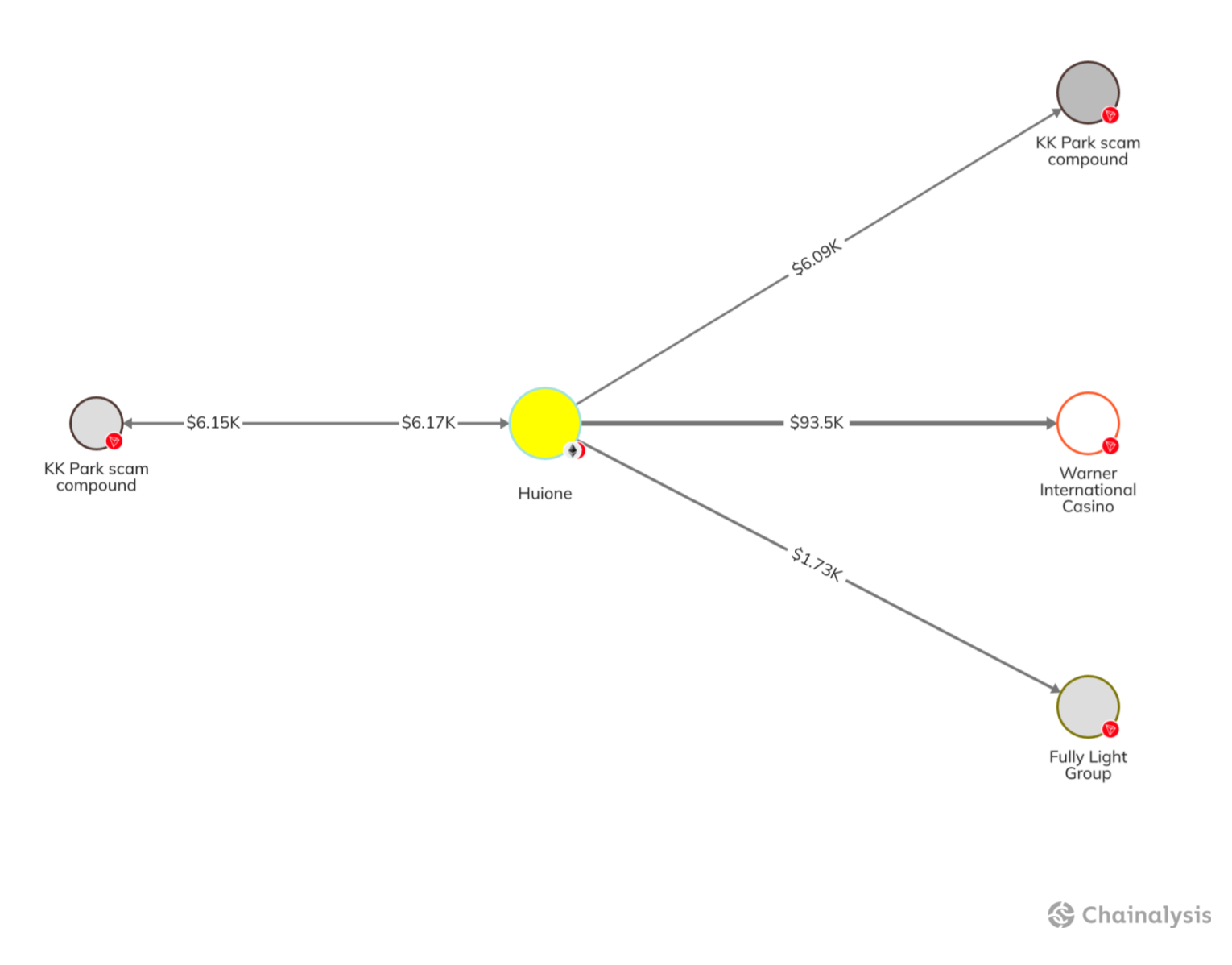
Chainalysis has unveiled the vast scale of cryptocurrency operations on the Huione Guarantee platform, which is allegedly closely linked to cybercrime and the Cambodian government. According to the report, over $49 billion in cryptocurrency has passed through the platform since 2021. In July, the company Elliptic had already identified Huione Guarantee as a key player in the “pig butchering” scam industry. At that time, experts stated that Huione Guarantee acts as a guarantor or escrow provider for all transactions.
Chainalysis’ investigation revealed that Huione Guarantee plays a much more significant role in the cybercriminal world than previously thought. The platform connects buyers and sellers via Telegram, claiming a neutral stance and no verification of the authenticity of advertised goods. However, thousands of Telegram groups operate on the platform, many of which are believed by researchers to be linked to criminal enterprises in the region.
Blockchain analysis showed that Huione Pay, associated with the platform, was active on the Ethereum and TRON blockchains, with total inflows of over $1.9 billion and $47 billion, respectively. Many sellers on the platform openly advertise their illegal services using veiled expressions.
Researchers identified hundreds of transactions between Huione Pay and suspicious or illegal accounts. Among the recipients and senders of funds were accounts linked to fraudulent schemes, stolen assets, CSAM materials, as well as casinos and other illegal services. Transactions included transfers to accounts associated with fraudulent schemes in Myanmar and other criminal groups in Southeast Asia. Huione Guarantee facilitates not only the operations of individual fraudsters but also supports entire criminal networks.
The platform also offers access to facial recognition systems and tools for conducting Pig Butchering scams or creating pyramid schemes. Chainalysis noted that Huione Guarantee is a “hub” for numerous cybercriminals. The Huione Group formally engages in legitimate business, but its subsidiaries are deeply involved in criminal activities. One of the directors of Huione Pay, Hun To, is the cousin of Cambodia’s Prime Minister Hun Manet and has long been known for his ties to drug trafficking, money laundering, and organized crime in China.
The report also highlights other trends in cryptocurrency-related cybercrime. Criminal groups continue to adapt and accelerate the development of fraud tools. In 2024, a record number of new wallets were registered, indicating a surge in new fraudulent schemes. However, despite the use of new addresses in the chain, approximately 57% of fraudulent proceeds in 2024 still flowed to wallets that became active before 2024.
One of the largest wallets associated with fraud consolidates funds from various schemes operating out of KK Park, one of the most notorious scam centers in Myanmar, near the Thai border. Additionally, the civil war in the country has fueled the growth of criminal groups in unregulated border areas, prompting even the Chinese government to intervene and pressure the military junta to take action.
Since 2022, over $100 million has been sent to a wallet linked to KK Park, which may include both money from scam victims and ransoms paid by families to rescue their kidnapped relatives. Much of the money from fraudulent campaigns is then laundered through centralized exchanges like Huione Guarantee.
Earlier, Chainalysis determined that in the first half of 2024, victims of ransomware attacks paid over $459 million to attackers, an increase of $10 million compared to 2023 ($449.1 million).


